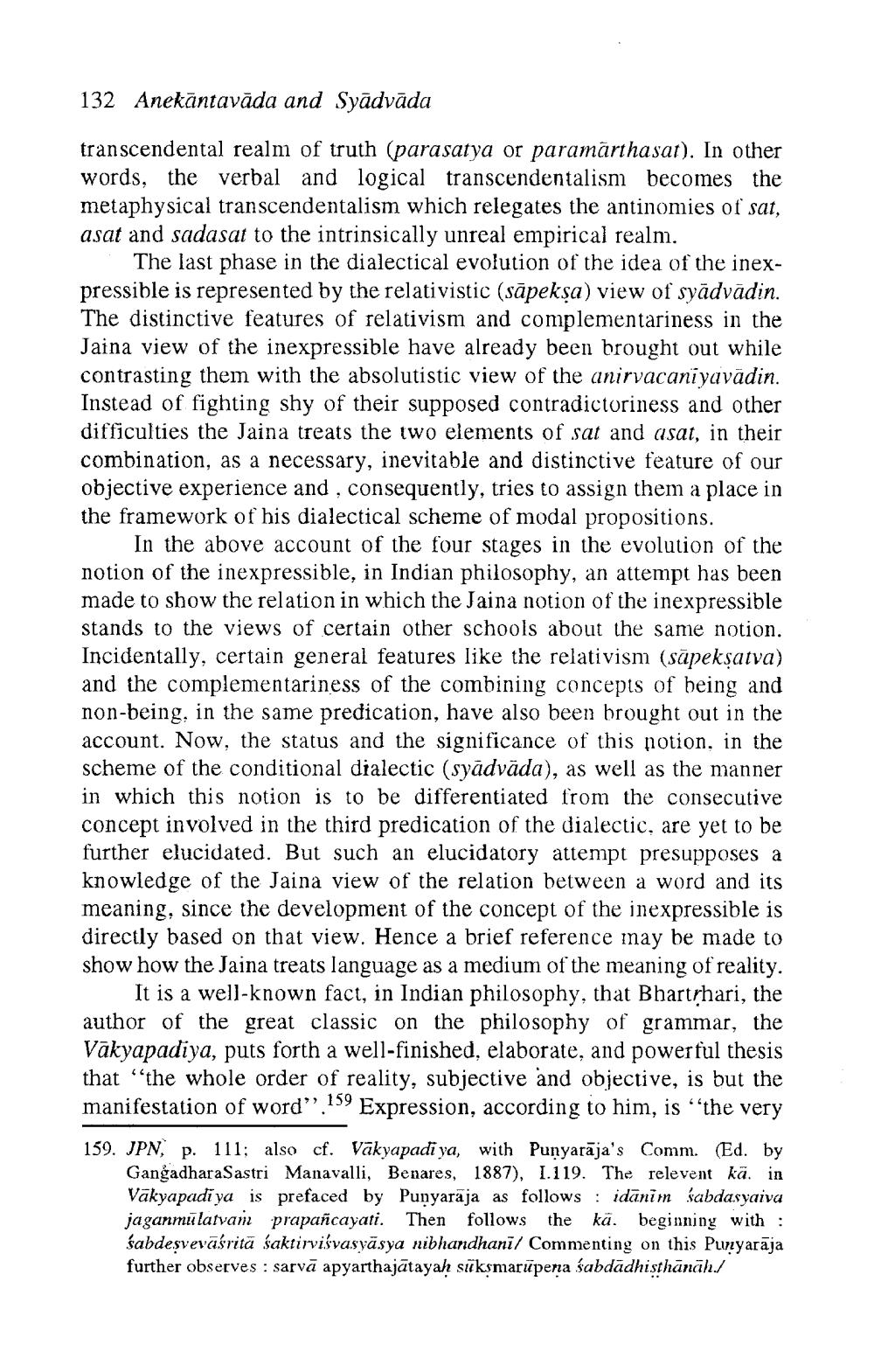________________
132 Anekantavāda and Syādvāda
transcendental realm of truth (para satya or paramarthasar). In other words, the verbal and logical transcendentalism becomes the metaphysical transcendentalism which relegates the antinomies of sat, asat and sadasat to the intrinsically unreal empirical realm.
The last phase in the dialectical evolution of the idea of the inexpressible is represented by the relativistic (sāpeksa) view of syādvādin. The distinctive features of relativism and complementariness in the Jaina view of the inexpressible have already been brought out while contrasting them with the absolutistic view of the anirvacanīyavādin. Instead of fighting shy of their supposed contradictoriness and other difficulties the Jaina treats the two elements of sat and asat, in their combination, as a necessary, inevitable and distinctive feature of our objective experience and, consequently, tries to assign them a place in the framework of his dialectical scheme of modal propositions.
In the above account of the four stages in the evolution of the notion of the inexpressible, in Indian philosophy, an attempt has been made to show the relation in which the Jaina notion of the inexpressible stands to the views of certain other schools about the same notion. Incidentally, certain general features like the relativism (sāpekṣatva) and the complementariness of the combining concepts of being and non-being, in the same predication, have also been brought out in the account. Now, the status and the significance of this potion, in the scheme of the conditional dialectic (syādvāda), as well as the manner in which this notion is to be differentiated from the consecutive concept involved in the third predication of the dialectic, are yet to be further elucidated. But such an elucidatory attempt presupposes a knowledge of the Jaina view of the relation between a word and its meaning, since the development of the concept of the inexpressible is directly based on that view. Hence a brief reference may be made to show how the Jaina treats language as a medium of the meaning of reality.
It is a well-known fact, in Indian philosophy, that Bhartrhari, the author of the great classic on the philosophy of grammar, the Vākyapadiya, puts forth a well-finished, elaborate, and powerful thesis that "the whole order of reality, subjective and objective, is but the manifestation of word" 159 Expression, according to him, is the very
159. JPN, p. 111; also cf. Vakyapadi ya, with Punyaraja's Comm. (Ed. by
GangadharaSastri Manavalli, Benares, 1887), 1.119. The relevent ka. in Vākyapadi ya is prefaced by Punyaraja as follows : idanim sabdasyaiva jaganmu latvam prapancayati. Then follows the kū. beginning with: śabdesvevāśritā saktirvisvasyāsya nibhandhani/ Commenting on this Punyaraja further observes : sarvā apyarthajatayah suksmarūpena śabdadhisthānā)./




